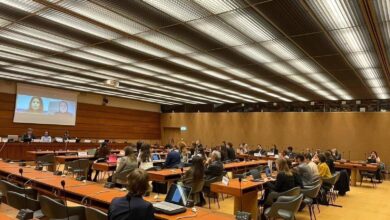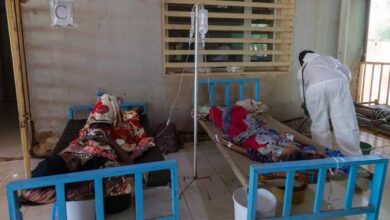
The suspension of schooling in most parts of Sudan during the war between the army and the Rapid Support Forces (RSF) — now ongoing for more than 27 months — has led to the spread of numerous negative social phenomena, the most alarming of which is the rise of child marriage, particularly in displacement areas. Many observers attribute this trend to poverty, insecurity, and the absence of protection institutions.
According to the UN Office for the Coordination of Humanitarian Affairs (OCHA), the rate of girls married below the legal age has risen to 34 percent, with 12 percent marrying before the age of 15. The agency noted that displacement, family separation, and economic hardship are among the driving forces behind this dangerous trend.
Since the war began, more than 19 million children have dropped out of school, 70 percent of them girls, according to UNICEF, creating a huge social void that has fueled harmful practices.
Fear and Conservatism
Fatima Hassan, a primary school teacher in Gezira State, said:
> “In truth, the situation of girls has changed drastically after schools were closed for more than two years because of the war.”
She added:
> “Before the shutdown, we had about 300 female students from grades one to eight. After the closure, the girls stayed home for long periods with no alternative activities. At first, families hoped schools would reopen, but as time dragged on, they began making life-changing decisions — most notably, marrying off their daughters.”
She continued:
> “The indicators didn’t come directly from the school, but from the community around us. We’d hear from neighbors or during visits that a student had married or gotten engaged — many were just 13 or 14 years old. Most of these marriages took place quietly, like family settlements rather than conscious decisions.”
> “When we ask mothers why, the answer is usually that schooling is no longer available, and there are no organizations offering alternatives. With the economic collapse, families fear for adolescent girls left idle at home — both for safety and social reasons. In this environment, early marriage is seen as a practical choice, a way to ‘protect’ or ‘preserve’ the girl.”
> “School was not only a place for education but also a safe space that built awareness and provided guidance. With its absence — and no replacement from the government or aid organizations — families have filled the gap with decisions that completely reshape a girl’s future.”
Social and Economic Drivers
Testimonies from parents reveal that economic and social pressures play a direct role in early marriage decisions.
Osama Saeed, living in a temporary displacement camp in Sennar State, said:
> “I have two daughters. I married off the elder one when she was 15. We live in exceptional circumstances — no schools, no work, no services, and no one cares. My daughter was in seventh grade when classes stopped, and she spent a year at home with nothing to do. We were afraid for her — the area isn’t safe, and a girl that age can face many dangers.”
> “When a relative proposed, we saw him as trustworthy and able to provide stability. It wasn’t an easy decision, but we had no alternatives — no education, no protection from the state or aid groups. We thought marriage might be the only way to protect her from the unknown.”
He added:
> “The community also pushes this direction. People say if a girl stays home unmarried, she’ll end up doing something wrong. We don’t have the luxury of choice — we make decisions under pressure, based on what’s possible, not what’s best.”
Absence of Law
Asma Ali, a lawyer and child rights activist, said that child marriage in conflict zones is not a new phenomenon, but rather a direct result of the collapse of educational and social structures.
> “Sudanese law lacks a clear, binding provision that prohibits marriage under 18,” she explained. “Child rights laws are barely enforced, especially in areas outside state control. In this legal vacuum, social customs become the only reference — and they’re often unjust to girls.”
Yumna Fadl, a specialist in personal status law, added:
> “Sudanese law doesn’t set a fixed minimum age for marriage; it leaves it to the judge or guardian’s discretion. This allows marriage below 18 if the girl is deemed ‘mature.’”
> “In conflict zones, there’s no effective mechanism to register marriages. Most take place informally, without paperwork or oversight. This creates a weak legal environment that fails to protect girls and leaves them no room to object or report abuse.”
She emphasized that the absence of state institutions and the limited reach of NGOs have worsened the crisis, leaving social traditions as the only authority in determining girls’ fates.
Compounded Crises
Social researcher Somaya Mohamed said:
> “Child marriage today can’t be separated from the daily pressures families face — lack of education, poverty, fear of assault or stigma, and the collapse of state protection. Families view marriage as a form of safety or relief from burden, but in reality, it’s a symptom of systemic collapse. We can’t fight early marriage without providing safe, realistic alternatives.”
Meanwhile, psychologist Mona Abdulsamad warned that early marriage often leads to long-term psychological trauma, especially in environments lacking awareness and support.
> “Girls this young lack the emotional maturity to handle marital responsibilities. We frequently observe anxiety, depression, and loss of self-confidence among those forced into such marriages. They feel torn from their natural path without ever being given a chance to grow or choose their own future.”




